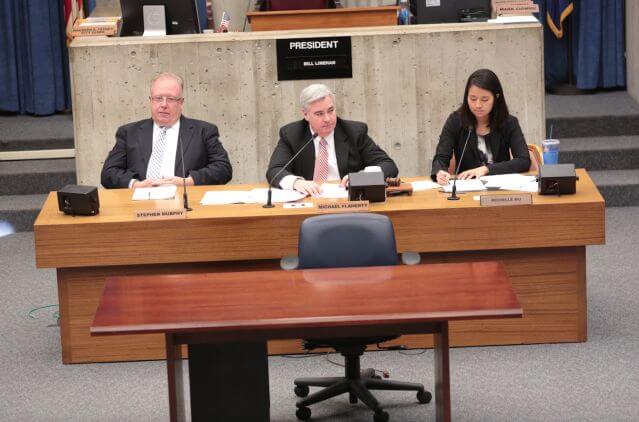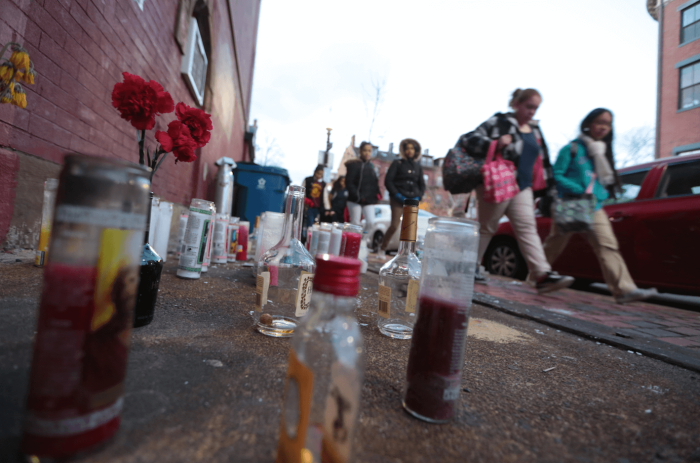The sign on the back of his wife’s car has been up since Mother’s Day, but the search for a new kidney is a long and arduous task for Nathan Knowles and the people who have volunteered in vain to donate. “I’m not dying, not yet,” Knowles, 43 of Quincy, said. “I am trying not to get to that point. When people in my situation, most of us are very active and want to stay that way.”
He is battling a genetic disease called Polycystic kidney disease. He and his family have been looking for a donor for about a year and have run out of options amongst their family and friends. His family loves him. They fight for his well-being everytime they go for a drive to the store. The back window reads: “Husband and father of 2 needs kidney. Type O.” RELATED:Hope Lodge offers cancer patients a home away from home free of charge “I’m really lucky that I have another donor being tested and hopefully will be cleared soon for surgery but you can’t count on one donor,” Knowles said. “Doctors say try to get as many people as possible. Your insurance will only pay for one person testing and it takes months.” According to information put out from Tufts Medical Center, where Knowles works and is a patient, the symptoms are unpleasant but manageable.
“The hallmarks of the disease are cysts on the kidneys which causes the organ to swell,” said Dr. Ronald Perrone, MD, Associate Chief of the Division of Nephrology at Tufts Medical Center. “Patients encounter pain, possible blood in their urine, infections in the cysts and eventual failure. It affects both kidneys, and while it can interfere with the day to day life, many patients can enjoy a decent quality of life in the early stages.” On average, Polycystic kidney disease, a hereditary disease, leads to kidney failure by the age of 55. At an incidence of one out of a thousand people in the United States, it is the fourth most common reason for patients requiring a transplant or dialysis. “That sign is staying on my car until my husband has surgery and even after to make sure it’s a done deal,” his wife Michele Corey told Channel 7 News. “He’s my best friend so I don’t want him going anywhere.” Finding a donor requires the proper blood type match, good health on the part of the donor, a clean slate without any cancer, no active infections, or high blood pressure.
The donation is a voluntary decision where money or pressure cannot play a factor.
“People donate organs out of a sense of altruism,” Perrone said. “Even anonymously, it’s called the gift of life for a reason.”
Assuming things go smoothly, the donor’s kidney is removed using scopes and cameras, small incisions. Not very painful. By three to six weeks, donors are functional. Someone working in an environment with heavy lifting will wait three months. “They (donors) walk out of the hospital following the procedure.” Perrone said. “They are eating, having normal bowel movements, doing normal activities. You don’t feel differently having donated a kidney. You can even drink alcohol in moderation. There’s a small risk of kidney failure down the line, but you’re automatically put in preferential treatment on the waiting list.” There are about 15,000 kidney transplants on average nationally. These are standard procedures in hospitals who perform them.
“If you can’t get a transplant, you go on dialysis, which is not death,” Perrone said. “No one would rather go on dialysis and be on the waiting list for deceased donor.”
Knowles continues to volunteer for Quincy youth programs and sit on the board of Parks and Recreation while working full time. But he said the condition zaps the energy out him and going to bed before his family does is always frustrating. He is the father of an 11 and a 14 year old. “I need to be here for them,” Knowles said. “I also am dedicated to spread awareness on kidney diseases while I get myself healthy.”


















